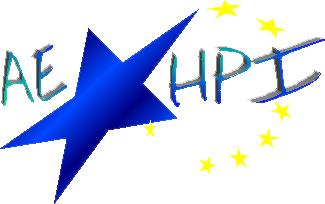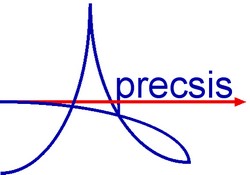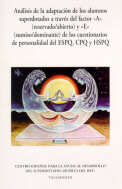Member associations of Eurotalent
This page lists all the member associations of Eurotalent classified by country.
FRANCE :
L’AE-HPI (Association pour l’épanouissement des enfants à haut potentiel intellectuel) - Paris

La présence d’un enfant différent peut perturber la classe et poser un problème de gestion à l’enseignant.
Il peut s’agir d’un enfant à haut potentiel intellectuel. Qui est-il ? Comment faire avec lui ?
Ce même enfant crée du désarroi au sein de sa famille qui se sent peut-être un peu seule.
Et cet enfant, que ressent-il ? Que vit-il ?
Un enfant à haut potentiel intellectuel n’est pas nécessairement le premier de sa classe, il n’est pas dans une logique de compétition mais a besoin d’une reconnaissance et parfois d’une prise en compte spécifique.
L’association pour l’épanouissement des enfants à haut potentiel intellectuel (AE-HPI) accueille les familles, les enseignants et professionnels de l’éducation et de la santé à ses permanences :
- Le mardi de 9h30 a 12h au CCAS, 2 place Jean Jaurès à Rueil Malmaison
- et le vendredi de 17h a 19h30 a la MDA, 23 rue Vernet Paris 8ème et en province à Montpellier.
Pour écouter, trouver des solutions et apaiser les souffrances.
L’AE-HPI est agréée par le Ministère de l’éducation Nationale – Académie de Versailles et partenaire d’Eurotalent (OING affiliée au Conseil de l’Europe).
Elle organise et offre : Recherche – Congrès - Colloques - Animations pédagogiques - Information et formation pour les enseignants et professionnels de l’éducation avec un programme sur mesure - Publications - Aide aux parents – Groupes de parole – Ateliers et activités pour les jeunes dont la psychologie racontée aux enfants et les Rencontres Savantes.
Présidente : Micheline Abergel
Tel : 01 30 82 49 23
E-mail :
Site Internet : www.ae-hpi.org
Page Facebook AE-HPI
APRECSIS (Plural association for the Recognition of Giftedness) - Tours

Article II. General objective
The Association gives itself for objective, onto multidisciplinary scientific bases, to work for the recognition of the intellectual giftedness in their plural forms, for the implementation of diversified actions, according to the particular situations, necessary to the support and development of high capacities in talent, without discrimination of age, sex or intellectual profile, by any ways and appropriate legal services, in the direction of all the people and concerned authorities.
Article III. Particular objectives
We work in a biopsychosocioeducative point of view and attempt more specially to promote :
- the detection of intellectually exceptionally gifted people as soon as possible;
- the information of intellectually exceptionally gifted people and/or their family, and the contacts between them to take out them of isolation ;
- the information of the official authorities, educational structures, health workers, and every concerned people ;
- the implementation of any specific support actions for assistance to the concerned families and specially those with difficulties;
- the implementation of the actions of basic and applied research to improve both the knowledge in this domain and the necessary concrete applications, in particular in the implementation of capacities.
Article IV. Independence
The Association is Independent from any political, religious or philosophic obedience.
Contact : M. Pierre Morin, President -
Website : www.aprecsis.fr
SPAIN :
Centro Huerta Del Rey (Centro Español de ayuda al desarrollo del superdotado) - Valladolid

ORGANIZACIÓN NO GUBERNAMENTAL integrante de Instituciones Internacionales:
• World Council for Gifted and Talented Children (WCGTC).
• Comité Europeo para la educación de niños y adolescentes superdotados (Eurotalent) dotado de estatuto consultivo ante el Consejo de Europa.
• Federación Iberoamericana del World Council for Gifted and Talented Children (Ficomundyt).
ORGANIZA Y PARTICIPA EN DIVERSOS ÁMBITOS DE FORMACIÓN E INVESTIGACIÓN:
• ENCUENTRO DE JÓVENES
• IDEACCION
• INVESTIGACIÓN 
- Investigación titulada: “Análisis de la adaptación de los alumnos superdotados a través del factor ‘A’ (reservado/abierto) y ‘E’ (sumiso/dominante) de los Cuestionarios de Personalidad del ESPQ, CPQ y HSPQ », del Centro Español de ayuda al desarrollo del superdotado con la colaboración de la Consejería de Educación y Cultura de la Junta de Castilla y León (1995).
- Investigación titulada: « Formación Inicial y Permanente del Profesorado no universitario de Castilla y León », del Centro Español de ayuda al desarrollo del superdotado con la colaboración de la Consejería de Educación y Cultura de la Junta de Castilla y León (1996).
• CURSOS Y ESCUELA DE PADRES
• 14 CONGRESO MUNDIAL, BARCELONA 2001






Write a comment